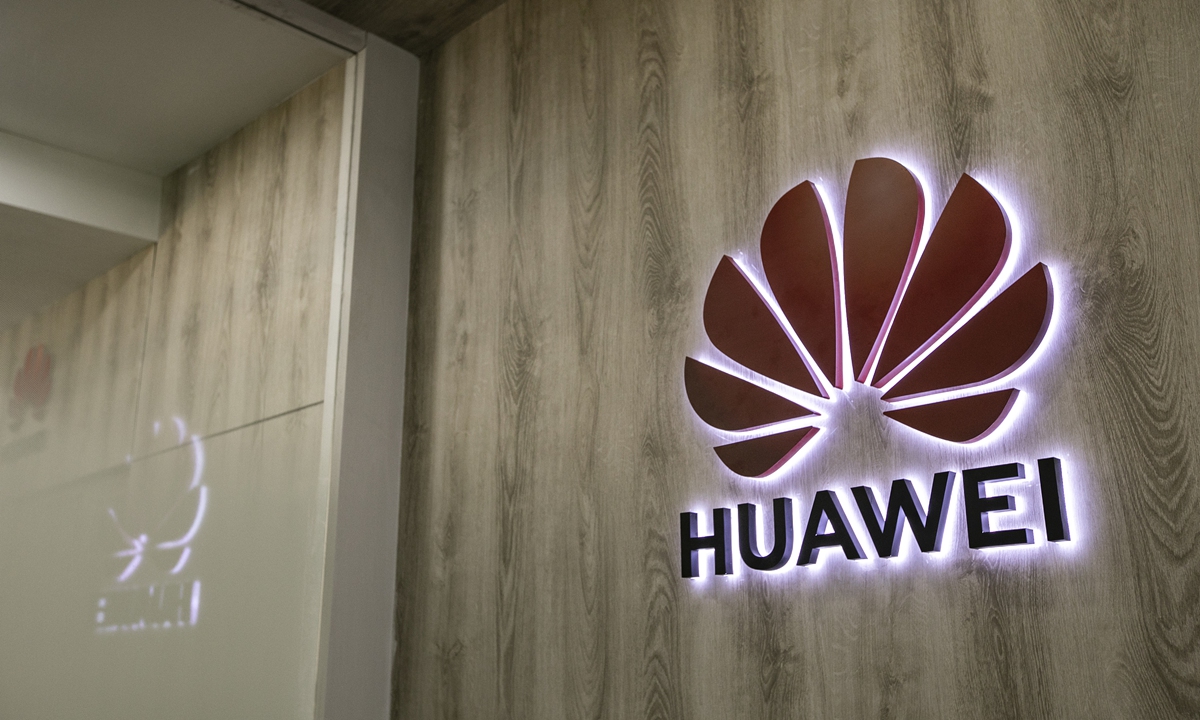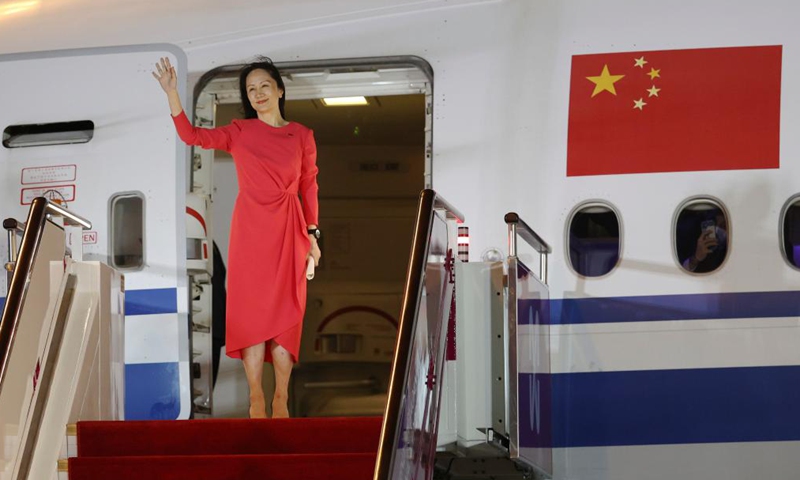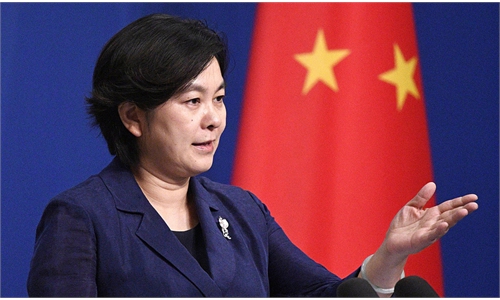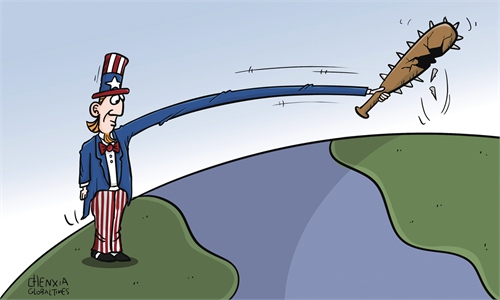Canada has ‘less reason’ to push out Huawei, but US pressure lingers
Ottawa has ‘less reason’ to push out firm, but US pressure lingers

Huawei. Photo: VCG
Whether or not to allow Huawei to join Canada's 5G networks has risen to become a new focus of public attention after the release of Meng, who was illegally detained by Canadian authorities at the behest of the US government for over 1,000 days, returned to China over the weekend.
Analysts said that the settling of Meng's high-profile case, which seriously undermined China-Canada relations, helped pave the way for positive interaction among China, Canada and the US, but tensions will likely linger given Washington's relentless containment campaign against China.

Meng Wanzhou waves at a cheering crowd as she steps out of a charter plane at Shenzhen Bao'an International Airport in Shenzhen, South China's Guangdong Province, September 25, 2021. Photo: Xinhua
Just days after Meng's safe return to China, Trudeau said on Tuesday that Canada will decide whether to allow Huawei into its 5G wireless network, while noting that major telecommunications firms had started to remove Huawei from their networks, according to media reports.Ma Jihua, a veteran telecommunications industry analyst, told the Global Times on Wednesday that he believed the government is unlikely to directly force Huawei out. "The Canadian government has not tried to force the company out when Meng was detained there, it has less reason to force Huawei out now that Meng has returned home," Ma said.
Ma said that economic factors also weigh in and it makes sense for Canada to maintain the state quo, and using some of Huawei's equipment in its telecom industry. It must be aware that a US plan to replace all Huawei equipment in rural areas has not gone anywhere after nearly two years, Ma said.
Huawei's facilities in Canada support about 1,100 jobs, and the company's R&D spending during the pandemic actually increased by 30 percent year-on-year, domestic news outlet sohu.com reported in October 2020, citing a company executive.
Canada is also an important stronghold for Huawei in the North American market, and an important part of its globalization strategy, Ma said. "If not forced, Huawei won't choose to leave," he said.
Huawei has denied rumors that the company was planning to disband its Canadian unit and axe jobs. The company's founder Ren Zhengfei also urged to transfer its North America research center, which was reportedly moved from the US to Canada, into a recruitment center as part of a drive to attract foreign talent, according to an internal memo dated on August 21 but was circulated online on Tuesday.
However, Canada's decision will likely be impacted by the US' attitude toward the company and the broader China-US relationship, analysts said.
He Weiwen, a former senior trade official and an executive council member of the China Society for World Trade Organization Studies, told the Global Times on Wednesday that Huawei's presence in Canada is "99 percent" dependent on the stance of the US government.
"If hard pressed by the US, then Canada will have no choice but to force Huawei out. And such a likelihood is high," He said. "But China is not to be trifled with, therefore the matter over Huawei's 5G presence in Canada could also remain at a stalemate state."
Locking horns with China in a tech war, the US keeps flaming rhetoric on containing China's tech rise. It has pressed allies to remove Huawei from 5G networks on security grounds. All the other members of the so-called Five Eyes intelligence-sharing network have barred Huawei, Reuters reported.
China has fiercely pushed back against the US' unreasonable crackdowns on Huawei and other Chinese technology companies.
Asked about a US plan to spend $1.9 billion for rural networks to remove Huawei equipment at a press briefing on Wednesday, Hua Chunying, a spokesperson for the Chinese Foreign Ministry, said that the US could spend the money on many areas of desperate need amid the COVID-19 pandemic."The US has rights to continue its much ado about nothing within its borders, but it should stop abusing state power and fabricating charges to crack down on Chinese companies," Hua said.
He Weiwen said that the release of Meng needs to be viewed as an isolated case and there would be no sudden improvement in China-Canada ties or China-US ties; therefore, the prospect of Chinese companies investing in Canada will remain dim given the country's increasingly tightening scrutiny on Chinese investment.
On Tuesday, Chinese Ambassador to Canada Cong Peiwu urged Canadian officials to seriously reflect on its mistakes, learn from its lessons, and work with the Chinese side to choose the right direction for the development of China-Canada relations to bring the bilateral relationship back on track as soon as possible.
Despite a 19.9-percent-increase in bilateral trade in the first half of 2021, the prospect of Chinese investment to Canada has remained bleak. A rampant COVID-19 pandemic, the uncertainty of the Biden administration when it comes to China policy, and heightened uncertainty over China-US and China-Canada ties will mean a narrowing scope for investment, according to a February report by China's Ministry of Commerce on China's outward investment and economic cooperation.
Meanwhile, Reuters reported that Chinese electric vehicle battery giant Contemporary Amperex Technology Co (CATL) has agreed to purchase Canada's Millennial Lithium Corp for C$376.8 million ($297.3 million).
"No matter how its business goes, Huawei will fight hard to retain its ground in overseas markets and it will keep its R&D expenditure high as long as it still has enough funds," Ma said. "A withdrawal is unlikely to happen."



